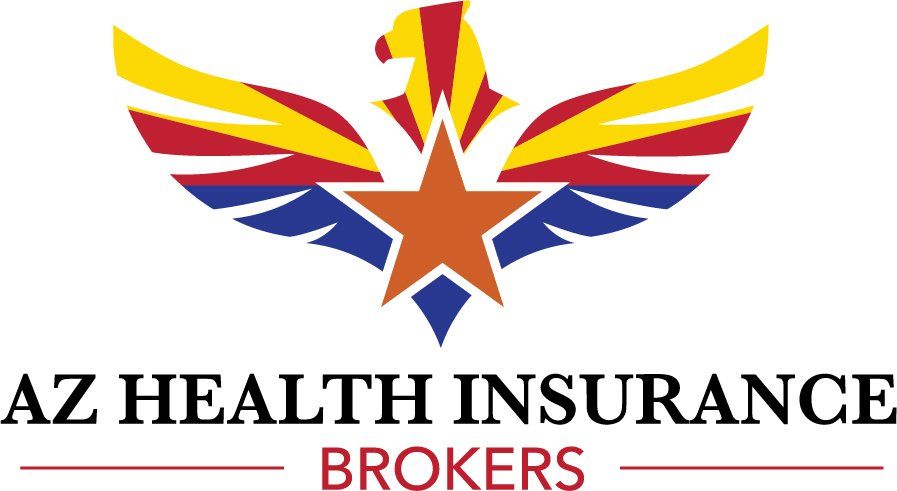PEOs for Businesses: What Is a PEO? Should Your Business Use a PEO?
For small businesses that are having some challenges with human resources (HR) functions, a professional employer organization (PEO) may be a solution worth considering. PEOs act as outsourced HR teams. They can manage administrative tasks, like:
- Group health insurance benefits
- Payroll
- Workers’ compensation
- Employee training
In some cases, a PEO can improve efficiency and make financial sense for small businesses. In others, you could save money handling these tasks in-house or by working with a more specialized partner, especially for group health insurance administration.
In this guide, learn more about what a PEO is, pros and cons of PEOs to consider, and signs it may be time to exit a PEO and how to do so.
Key Takeaways
- Professional employer organizations (PEOs) can provide scalable support to small businesses in human resources functions.
- PEOs have both pros and cons, related to HR administrative control, business expenses and time and resource requirements.
- For many small businesses that are using PEOs for health insurance benefits administration, it may make more financial sense to partner with a group health insurance broker, which results in financial savings and improved benefits for employees.

PEO Explained
What is a PEO, exactly? A PEO provides outsourced HR administrative support. Areas a PEO might manage include:
- Benefits administration, including health coverage such as HRA 105 plans, qualified small employer health reimbursement arrangements (QSEHRA), individual coverage health reimbursement arrangements (ICHRA) and health savings accounts (HSAs) and business insurance plans, including self- funded insurance, level funded insurance and fully insured health plans for group insurers such as UnitedHealthcare Surest, Aetna, Cigna, UnitedHealthcare and Blue Cross Blue Shield (BCBS) of Arizona
- Tax compliance
- Government compliance
- Payroll administration
- COBRA insurance
- Safety programs and OSHA compliance
- Training and development courses
- Risk management services
PEOs may work with diverse companies across the country, technically providing support to thousands or more employees. For a business that doesn’t want to hire a full-time, dedicated HR or administrative team, the business can outsource tasks related to the above categories to a PEO.
PEOs can draw on their vast resources and regulatory compliance expertise to ensure small businesses stay compliant with local, state and federal regulations. They can also free up small business owners to work on the tasks they want to focus on.
Pros of a PEO
PEOs may provide benefits to some small business owners. Typically, a PEO makes the most sense for owners of multi-state businesses with fewer than 25 employees, who want to offer very rich benefits for their staff. Some benefits of PEOs include:
- Multiple tasks handled in one place: PEOs can manage a variety of HR tasks on behalf of the business, including 401(k) plans, health benefits and more. Instead of having to source multiple vendors, a business can work with a single PEO to get things done.
- Regulatory compliance: PEOs are experts in nuanced compliance regulations. This makes it easier for small businesses in multiple states to gain the peace of mind they’re operating lawfully wherever they do business.
- Potential cost savings: In certain scenarios, a small business may be able to save money using a PEO. For example, instead of hiring in-house HR staff members that require an annual salary plus benefits and overhead, a PEO eliminates those costs.
PEOs are simple to roll out, and they’re scalable. While they may provide some benefits, small business owners should also be aware of when a PEO might not be the best solution.
Cons of PEO
There are many different PEO providers available, and choosing the wrong one could result in significant expenses for a business, as well as potential problems. Some PEO disadvantages to consider include:
- Investment: Often with PEOs, up-front costs and fees aren’t always transparent. A business owner may sign a contract with a PEO, only to be surprised by fees later on. Plus, for some business tasks, like administering group health insurance, it’s actually much more expensive to use a PEO compared to working with a specialist like a health insurance broker. Business owners should weigh costs compared to what they need to choose the best solution.
- Exit challenges: Small business owners should keep in mind that if they do one day want to exit a PEO, it can be challenging to do so without incurring significant fees and/or a loss of staff accumulations. For example, if a portion of some employee’s deductible has been satisfied, that may not translate to your new insurer.
- Lack of customization: Because PEOs work with different businesses, small business owners may find that customization options are lacking. It may be more beneficial to work with a vendor that can offer personalization based on the unique needs of a business, rather than a PEO that offers generalized services for all clients.
- Communication issues: Another potential PEO downside is that it may be difficult to get quick answers to questions and clarity for any issues a business may have. Since PEOs are working with multiple clients, a small business owner may find service and response times are slower than what they need.
For small business owners who are looking for a true partner, PEOs may not offer the personalized service they need. Plus, PEOs can be more expensive than other options and can be difficult to leave on smooth terms. For these reasons, small business owners should carefully consider all options before signing up with a PEO.
How to Choose a PEO
When you’re comparing the multitude of PEO vendors out there trying to sell you services, follow these steps to improve the likelihood of a successful partnership.
- Assess your needs. Understand your specific HR needs, including payroll processing, benefits administration, compliance management and any other services you require. Make a list of must-have services versus those that are nice to have.
- Research potential PEOs. Look up PEO providers online, and/or ask colleagues for recommendations. Create a list of ones that offer what you’re looking for. Contact those for a free consultation.
- Evaluate your financial stability. As you consider the costs, look at your financial projections to ensure you’ll be able to pay for PEO services during the contract length you’re considering.
- Consider technology and integration. If you’re already using specific software and systems, enquire to see if the PEOs you’re interested in can integrate with your existing business tools.
- Review compliance expertise. Make sure the PEOs you’re interested in are experts in compliance for the locations you’re currently operating in, and any areas you’re interested in expanding into.
- Assess employee benefits. Look for PEOs that offer the employee benefits you’re interested in providing to your workers, like business health insurance, dental insurance, term life insurance, whole life insurance, universal life insurance and burial insurance.
- Understand service level agreements (SLAs). Have a lawyer review any potential SLAs and answer any questions you have, so you’re completely clear about what each partnership would entail.
- Compare costs. Understand the true costs of the PEO and the value each one can bring to your business. Compare the potential return on investment you can expect with each PEO.
- Seek references and recommendations. Ask potential PEO partners for similar clients they have that you can talk to for references and recommendations.
- Negotiate contract terms. If you’re interested in a PEO but need to adjust the contract, negotiate to get closer to the deal you’re interested in.
- Trust your instincts. As a small business owner, you’ve cultivated strong business instincts that have helped you open and run your business. If your gut is pointing you one way or driving you away from a PEO, investigate further to come to a decision you’re confident in.
You can also utilize professional networks like LinkedIn to ask your colleagues for recommendations for PEOs. Take your time with researching, since, as mentioned, PEO contracts can be difficult to exit and may result in extra costs when the fit’s not right.
When to Exit a PEO
There are many signs your business may be outgrowing its PEO. As companies, grow, they’ll typically pay more in PEO administration fees. While the scalability of a PEO can be a benefit, it can also result in exorbitant costs that outweigh the benefits.
There are other reasons you may want to exit a PEO. You may find that communication is lacking, or the PEO isn’t living up to the results they promised in the consideration phase.
When you determine it’s time to end a PEO partnership, the first step for how to exit a PEO is to review the contract terms, including exit terms. Notify the PEO, and work with a lawyer for help when needed.
To ensure your employees retain the benefits they’re used to, contact new health insurance benefits brokers for a seamless transition. You’ll want to ensure compliance continues to be met, so work with new partners who are compliance experts where you operate.
Want to Exit a PEO? Contact AZ Health Insurance Brokers
The team members at AZ Health Insurance Brokers are experts in helping small businesses exit PEOs. We assist small business owners with guidance, recommendations and strategies to create a solution that has similar functionality to a PEO, without the expensive costs.
If you’re interested in offering
small business health insurance,
life insurance and/or other types of benefits to employees, contact AZ Health Insurance Brokers for a free consultation.
Contact us online, call 602.617.4107 or email
quotes@azhealthinsurancebrokers.com for more information.
PEO FAQs
What does PEO stand for?
PEO stands for professional employer organization. A PEO serves as outsourced HR administration.
How do PEOs work?
PEOs act as a business partner, providing HR duties for the small businesses they work with. The PEO and the small business enter a contract where the PEO shares employment responsibilities, such as payroll and benefits administration.
What are the benefits of a PEO?
A PEO can free up business owners’ time by handling HR administrative tasks, such as workers’ compensation, payroll and training. For small business owners who don’t want to hire full-time HR staff, a PEO may be a solution worth considering.
What are the downsides to a PEO?
PEOs can be expensive and may not provide the best return on investment. Additionally, PEOs may not offer personalized services or customization options that working with a health insurance broker could offer.
Should my company hire a PEO?
Whether or not a company should hire a PEO depends on several factors, including budget, employee team size, compliance needs, in-house capabilities and more. It’s best to ask for a free consultation from both PEOs you’re considering and other vendors, like health insurance brokers, to compare your options.
How many employees do you need for a PEO?
While companies with around 5 to 500 employees typically partner with PEOs, you can use a PEO with as few as two full-time employees. Because PEOs can be expensive, small businesses with fewer employees may benefit more from partnering with health insurance brokers that are less expensive but that help take care of benefits, like health insurance.
What’s the difference between a PEO and a co-employer?
A PEO is a partner but not an employer of record. A co-employer is appointed as an employee within the business to support HR tasks.
What’s the difference between a PEO and a staffing company?
Regarding staffing, a PEO may support staffing functions such as job interview coordination, but a staffing company typically is more involved. Staffing companies may take on tasks including recruiting, screening and interviewing to choose candidates.
How much do PEOs cost?
PEOs may charge a percentage of payroll, but some PEOs may charge based on the number of employes you have. More in-depth services, such as talent management or the supply of data insights, may result in extra charges. You can compare multiple PEO estimates during a consultation before you decide on the one you select.
What is a certified PEO?
The Internal Revenue Service (IRS) coordinates a certified PEO program. The CPEO distinction means a PEO has met the applicable requirements set forth by the IRS, which include reporting, legal and financial requirements. CPEOs may offer an advantage, including tax benefits and financial protections, including being able to pay federal taxes on your behalf.











